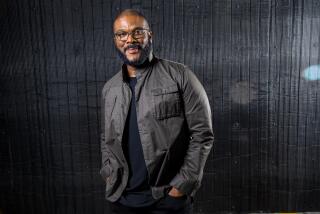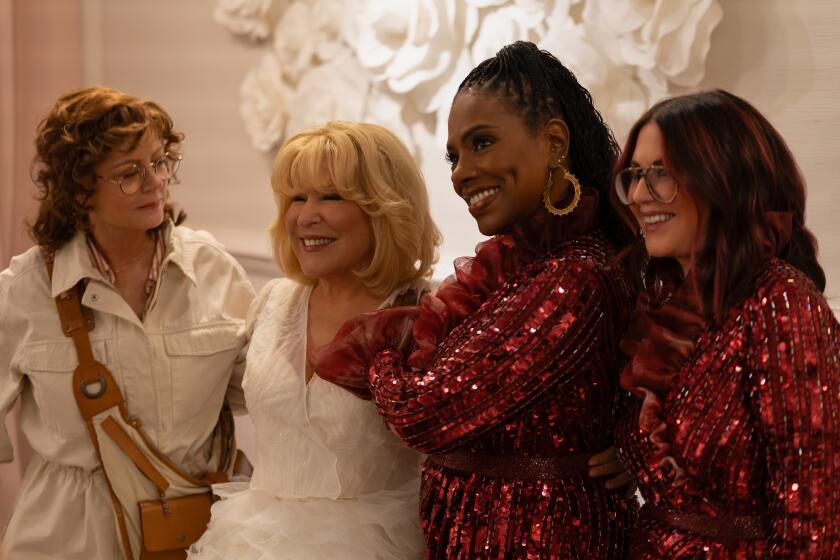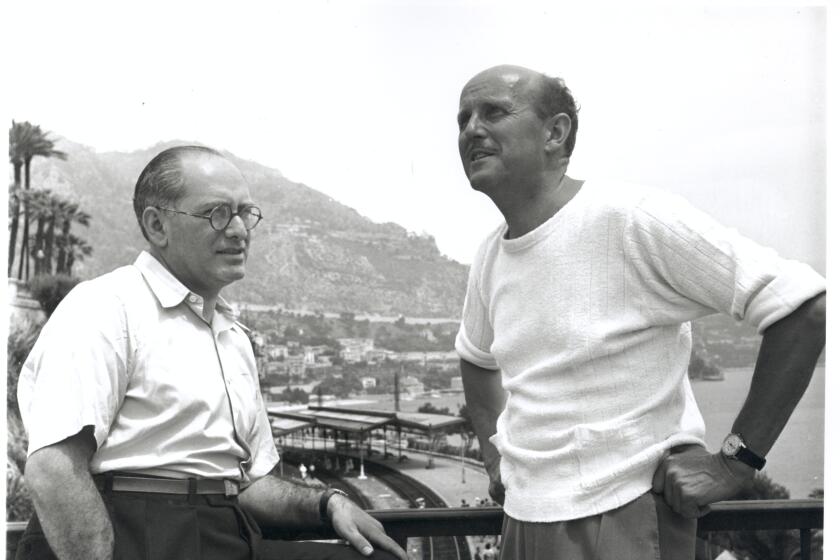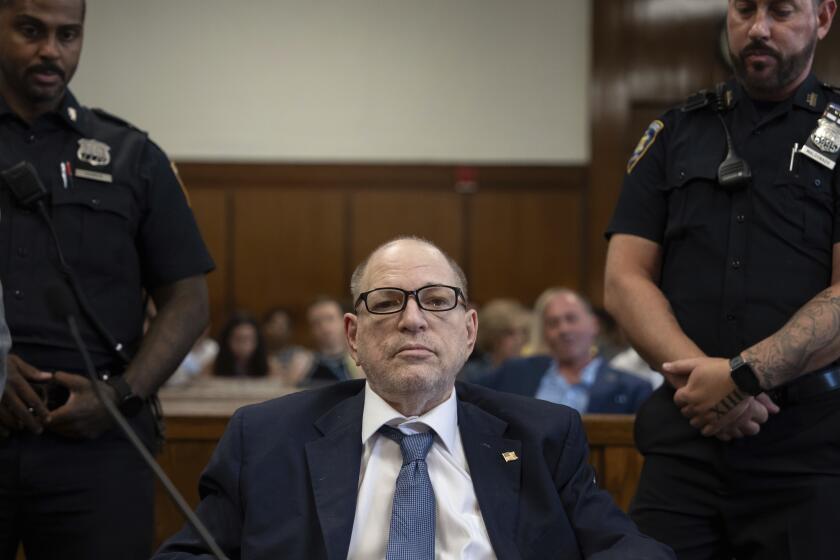A Bitter End to Movie Project : * Film: Bill Henderson says a friend sold out on plans for ‘Roadside Prophets,’ an update of ‘Easy Rider.’
A broken friendship and a lost opportunity frame a bitter behind-the-scenes prologue to Bill Henderson’s “The Bitter End.”
Many of Henderson’s decisions about how to make “The Bitter End” were shaped by an incident that began in 1989 when, he says, he and two associates came up with the idea for a film called “Roadside Prophets,” an update of “Easy Rider,” the ‘60s counterculture landmark that launched Jack Nicholson’s career. It would be about two characters, one of them suicidal, roaming the West on motorcycles in a series of encounters with eccentric “roadside prophets.” Henderson’s longtime friend David Swinson would produce; Henderson and James Whitney were to direct.
Henderson wanted to tell the story with a raw edge, working cheaply with a crew of friends.
Instead, as Henderson sees it, Swinson saw an opportunity to sell the idea to a larger production company, and went behind his back, costing him and Whitney their first chance to direct. Swinson’s production of “Roadside Prophets” is due to be released in January. Abbe Wool, originally brought in to write the script, directed a cast that includes John Doe of the rock band X and Adam Horovitz of the Beastie Boys as the roving bikers, and Arlo Guthrie, David Carradine, John Cusack and Timothy Leary as the “prophets” they encounter.
Swinson wound up producing “Roadside Prophets” for New Line Cinema, with a budget he puts at $3 million--about five times more than Henderson anticipated spending on the film.
Swinson, interviewed recently, said he began to seek financial backers for the film with Henderson and Whitney still on board but found that studios were not willing to fund a project with two first-time feature directors.
Swinson, formerly the concert booker for Bogart’s in Long Beach, said that when Wool came up with her script, his view of the project changed dramatically.
“It was something completely different,” he said. “I saw something in the script that was a unique vision that couldn’t be altered. I saw something bigger. Billy’s a friend, (but) I made a business decision on which way we took the film.” Swinson said his choice came down to “Take it the big way, the studio way, or make it the extremely low-budget way” that Henderson wanted. “I wanted the film to be seen.
“The decision I made for Abbe to direct it was a creative decision,” Swinson said, asserting that studios were open to backing a picture directed by Wool because she also was its writer and had a previous credit as co-writer of “Sid and Nancy.”
“I didn’t have a burning desire to cut anybody out,” Swinson said. “I had a burning desire to get the film made, and we got the film made. I didn’t burn (Henderson). He got compensated very fairly” for his role in developing the initial idea.
Henderson says he was paid but denies that it was a fair amount. He also disputes Swinson’s assertion that Swinson kept him informed of the developments that led to Wool taking his place as director.
While defending his business decisions as ethical, Swinson admitted that “I have a tremendous amount of guilt” because Henderson wound up not being able to direct the film as originally planned. “I have no guilt about anything else, other than (that) Billy didn’t direct. (But) there was nothing wrong with how I went about producing the film. Billy, in my shoes, would have done exactly the same thing.”
Henderson remains bitter about the episode. “(Swinson) definitely made a great business decision, but that’s not where it was supposed to go,” he said. “I feel very betrayed. No matter what he says, he knows how he feels, and who he (hurt) doing this. ‘Roadside Prophets’ started out to be (done for) the love of making a film, not making a lot of money. Is it worth a friendship to do that? You can always work, but real friends are hard to come by. To me, he sold that out.”
More to Read
Only good movies
Get the Indie Focus newsletter, Mark Olsen's weekly guide to the world of cinema.
You may occasionally receive promotional content from the Los Angeles Times.







